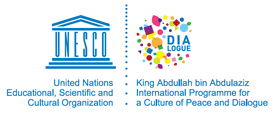KNOWLEDGE OF MEDIA AND INFORMATION FOR DEMOCRATIC DISCOURSE AND SOCIAL PARTICIPATION
The objective of this broad thematic area is to develop a critical understanding of how media and information can enhance the ability of teachers, students and citizens in general to engage with media and use libraries, archives and other information providers as tools for freedom of expression, pluralism, intercultural dialogue and tolerance, and as contributors to democratic debate and good governance. Figure 3 at the end of this section demonstrates this relationship. This theme embraces a variety of overlapping issues relating to the function and importance of media and information, including:
- Providing channels through which citizens can communicate with each other;
- Disseminating stories, ideas and information;
- Correcting the asymmetry of information between governors and governed and competing private agents;
- Facilitating informed debates among diverse social actors, and encouraging the resolution of disputes by democratic means;
- Providing a means by which society learns about itself and builds a sense of community;
- Providing a vehicle for cultural expression and cultural cohesion within and between nations;
- Acting as a watchdog of government in all its forms, promoting transparency in public life and public scrutiny of those with power by exposing corruption and corporate wrong-doing;
- Working as a tool to enhance economic efficiency;
- Facilitating the democratic process and assisting with the guarantee of free and fair elections;
- Acting as an advocate and social actor in its own right while respecting pluralistic values (e.g. news media);
- Serving as society’s collective memory (e.g. libraries);
- Preserving cultural heritage;
- Providing a gateway to information;
- Helping to bridge the digital divide by providing access for the general public;
- Allowing libraries to be seen as information agencies and learning resource centres;
- Promoting the use of all types of information resources in libraries;
- Facilitating teaching, learning and learning to learn (information literacy) through academic libraries; and
- Educating the library user.
(Adapted from UNESCO Media Development Indicators, 2008)
The fundamental pillars of good governance – i.e., transparency, accountability and civic participation – are difficult to achieve without open media and information systems. These systems can serve to stimulate a vibrant civil society or ‘civic culture.’ These service functions include:
- Providing information and knowledge understandable and relevant to different groups of people;
- Inspiring loyalty and sustaining commitment to values and procedures that uphold democracy and good governance.
The MIL curriculum provides teachers with content needed to develop skills in integrating media and information literacy in their classroom practices in a manner that values students’ voices and is sensitive to gender representation. Here, the issue is how one can engage with media and information resources to self-express and amplify individual voices in order to develop different understandings and perspectives.
Media and information providers make available platforms for widening participation in professional learning. In some countries they may even be used for open and distance learning (ODL) and for continuing professional development (CPD) of teachers. The curriculum explores how the different media and information resources might be used to improve teachers’ participation in their own professional communities. Teachers working in different social contexts and geographical locations can share knowledge and information about professional learning and practice.


